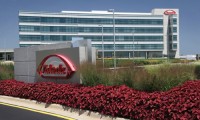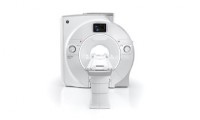-
PTC inks Royalty deal worth up to $1.5B on Genentech-partnered SMA drug Evrysdi
- Source: https://www.reuters.com/business/healthcare-pharmaceuticals/royalty-pharma-pay-1-bln-roches-sma-drug-royalties-2023-10-19/
- 107
- October 30, 2023
-
Takeda announces EC approval for Adcetris combination in Hodgkin lymphoma
- Source: https://www.pmlive.com/pharma_news/takeda_announces_ec_approval_for_adcetris_combination_in_hodgkin_lymphoma_1502265
- 114
- October 21, 2023
-
Merck’s Keytruda wins coveted FDA nod around surgery for early lung cancer—with a surprise
- Source: drugdu
- 172
- October 19, 2023
-
Interest in RNA Editing Accelerates as Therapies Approach the Clinic
- Source: drugdu
- 135
- October 17, 2023
-
Lilly’s Mirikizumab Shows Long-Term Remission in Phase III Crohn’s Trial
- Source: drugdu
- 110
- October 14, 2023
-
report
- Source: drugdu
- 185
- October 14, 2023
-
Merck’s Keytruda hits overall survival goal in early lung cancer as FDA decision nears
- Source: drugdu
- 121
- October 12, 2023
-
Takeda to Pull Lung Cancer Drug from Market After Failed Confirmatory Study
- Source: drugdu
- 197
- October 10, 2023
-
Genentech, PeptiDream Ink Potential $1B Radiopharma Deal
- Source: drugdu
- 118
- September 30, 2023
-
GE HealthCare partners with Mayo Clinic to accelerate work on imaging and AI
- Source: drugdu
- 125
- September 18, 2023
your submission has already been received.
OK
Subscribe
Please enter a valid Email address!
Submit
The most relevant industry news & insight will be sent to you every two weeks.













